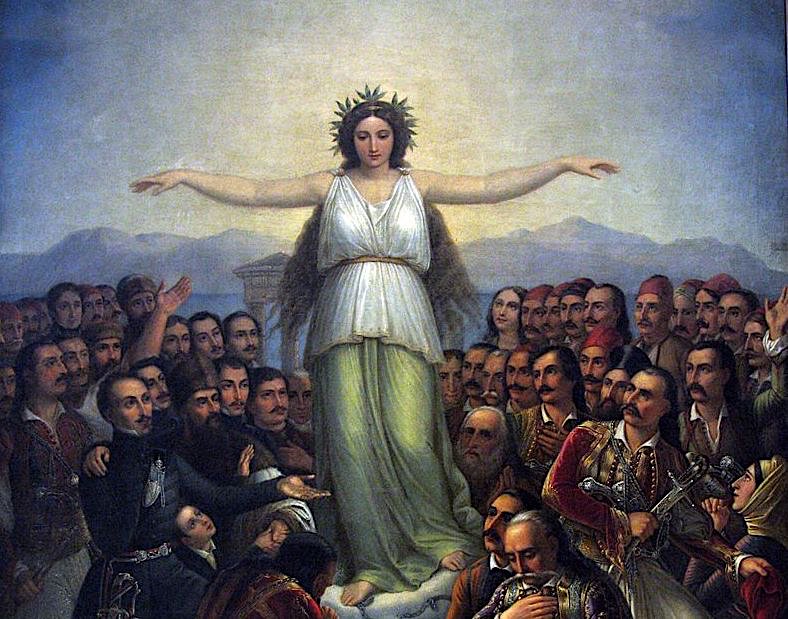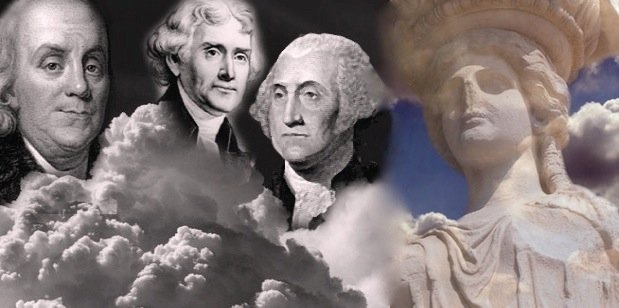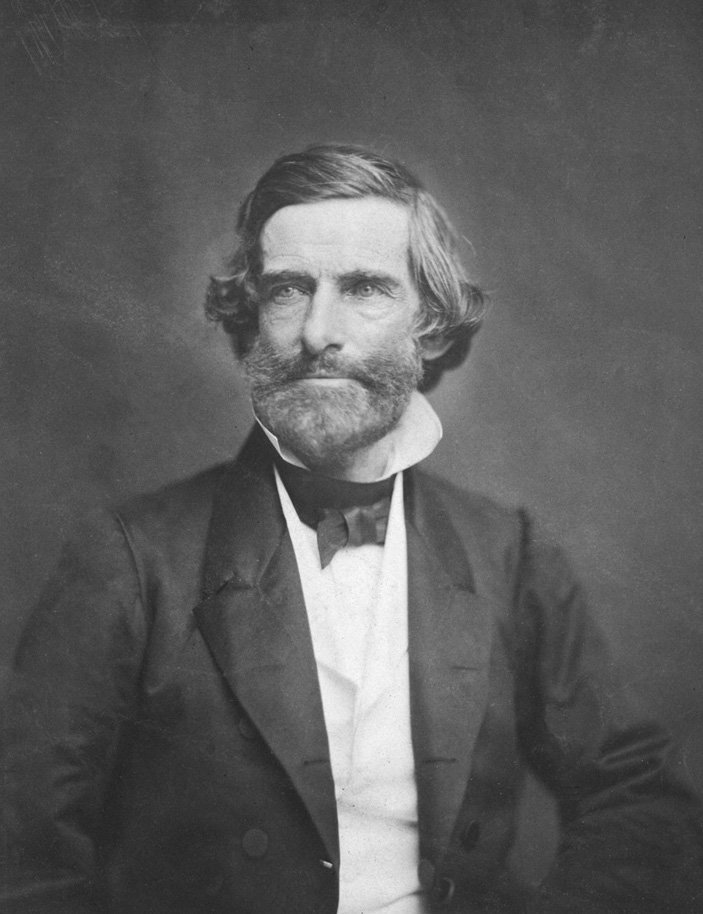
Dr. Stamatios Kartalopoulos, an Archon of the Orthodox Church, spoke recently at St. Mark Greek Orthodox Church in Florida about the strong bonds which unite the Greek and American War of Independence, saying they were both inspired by the ideals of liberty, democracy, freedom and justice.
The Archon gave his address on March 24, the eve of the bicentennial of the Greek War of Independence, offering a presentation entitled “1821 and Its American Connection,” which shed light on many lesser-known aspects of the Greeks’ struggle to regain their freedom two centuries ago.
In his stirring Boca Raton speech, Dr. Kartalopoulos, an emeritus Chaired professor of the University of Oklahoma, explained that when the Greeks revolted after almost four centuries of Ottoman oppression, “they had no military training, and no organization.

Greeks, like American colonists, had no Army, no Navy — against a “mega-empire”
Just like the American patriots who had revolted against British rule beginning in 1773 its the Boston Tea Party, the Greeks similarly had no military equipment, and no battleships. Like the Greeks, Kartalopoulos stated, they were “up against a mega-empire that had hundreds of thousands of armed soldiers, and a Navy equipped with modern guns.”
However, he went on to explain, Greeks had “deep faith in God, and unshakeable patriotism that was based on a strong foundation of democratic ideas and values.”
Ultimately, Kartalopoulos said simply, “They had the Hellenic Spirit. For thousands of years, it was handed down from generation to generation. Like a beacon, its light shined to the civilized world. Four centuries of oppression could not dim this light.”
Telling his audience that the American Revolution took place just four decades before the Greek Revolution, Kartalopoulos pointed out that the American Founding Fathers were deeply influenced by principles that Greek thinkers originated, saying “They found many ideas in the ancient constitutions of the Hellenistic Lycian League (a confederation of 23 ancient Greek cities in Lycia, Asia Minor), and in the Achaean League in Peloponnese, and in the Athenian democracy.”
American founding fathers deeply inspired by ancient Greek ideals
After suffering under an unresponsive monarchy that refused to allow them to be represented in Parliament, they intended to recreate the Ancient Greek precepts of democracy on American shores.
The ideas and practices that led to the development of the American democratic republic after 1776 owe an enormous debt to the ancient civilization of Greece.
All of America’s founding fathers had studied the ancient Greek philosophers, drawing inspiration on morals, ethics and the sense of self-determination — all fundamental principles of a democratic society.
In his State of the Union addresses in both 1822 and 1823, Kartalopoulos related, U.S. President James Monroe spoke in support of the Greek struggle for independence; and Thomas Jefferson, the third President of the US and Daniel Webster, a great orator, also expressed their admiration for the Greek freedom fighters.

According to Dr. Kartalopoulos, Americans such as George Jarvis, Dr. Samuel Gridley Howe, and Jonathan Miller, “organized Greek relief funds, and shipped clothing, food items and medical supplies to Greece.
American educator Howe, the founder of the Perkins School for the Blind, the very first educational institution for the blind in the US, revealed to the world the many horrors that took place during the War against the Ottoman Empire in his letters written from Greece.
As a well-educated man of the nineteenth century, Howe was well-versed in the Greek language and in the history of Ancient Greece.
Later adopting two boys who had been made fatherless in the Greek War of Independence, he made caring for Greece and her people part of the very fabric of his life.
In 1824, just after Howe had earned his medical degree, he became enamored of the Greeks’ fight against their Ottoman oppressors during the Greek Revolution, inspired perhaps by the Romantic poet hero, his idol Lord Byron.
After engaging in many military campaigns during Greece’s War of Independence, Howe returned to the United States in 1827 in order to raise funds and supplies to help alleviate the desperate famine and widespread suffering in Greece that had been brought about by the War.
Howe raises the equivalent of $16 million for Greek War relief
Howe’s heartfelt appeals, both in the form of letters and speeches he gave to groups, enabled him to collect about $60,000 which he spent on provisions, clothing, and the establishment of a relief depot for refugees near Aegina.
This princely sum would amount to $15,090,000.00 in today’s money. But just as importantly as his work in raising monies for the heroic Greeks, tending to the suffering Greek people and writing eyewitness accounts published throughout the world at the time helped inspire other philhellenes to assist the cause.
Kartopoulos stated in his address that “Similarly, American Colleges, Churches and U.S. Army officers contributed funds. Theaters staged productions and dedicated the proceeds to the Greek cause. And, in admiration of their bravery, cities in the U.S. were named after heroes of the Greek War for Independence, such as Ypsilanti, Michigan (in 1826), after Ypsilantis.”
In addition, in recognition of the heroic efforts of the Greeks during their Revolution, a city in New York State called Northampton changed its name to “Greece” in 1822.
Deep faith of the Greek people sustained them for many centuries
Recalling the deep faith of the Greek people throughout their centuries of occupation and the military struggle that took place during the Greek Revolution, Kartalopoulos stated that the struggle between Greece and Turkey is still not over.
The physician and professor noted that Turkish belligerence extends even to the cultural sphere, saying “Christian churches and monasteries in Turkey, most have been demolished, or converted to social clubs, or to Mosques.
“Just few months ago, despite the worldwide outcry, the Hagia Sophia Museum and the Hora Museum, both UNESCO-protected, were arbitrarily converted into mosques. And, as we speak, the Ecumenical Patriarchate in Istanbul (Constantinople) still endures pressure in many forms, despite the many efforts of the Archons of the order of St Andrew.”
Katalopoulos quoted former President George H. W. Bush’s words to Archbishop Iakovos when he signed the Greek Independence Day Proclamation in the White House on March 25, 1991: “March 25th marks several turning points in history. Americans and Greeks share many common values…This is just one example of the common ideals and values the people of Greece and America hold so dear: freedom, democracy, human rights, and justice.”
 RSS Feed
RSS Feed















 April 14th, 2021
April 14th, 2021  Awake Goy
Awake Goy 
 Posted in
Posted in  Tags:
Tags: 













